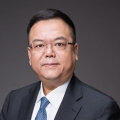'Flexibility Is Here to Stay'
Changing Work Ethics in Asia
ZURICH, July 7, 2022 – Asia Society Switzerland and The Adecco Group co-hosted a webcast with Ian Lee, Regional President Asia Pacific at The Adecco Group, and sociologist Nilanjan Raghunath, assistant professor at Singapore University of Technology and Design, about changing work ethics in Asia.
Our Key Takeaways
- Historically – at least in Japan – a safe and secure job was the most important criteria for employees choosing a career and employer. The economic phase and culture made it possible, that lifelong jobs ensured stability in income and daily routine. While in the post-world war economy the consistency was important, it limits innovation in a contemporary workplace. Traditionally being the harbinger of change in the workforce, Tech firms in Asia have long started offering alternative ways of working. This shift to a new way of working has since trickled down to other industries.
- Flexibility is here to stay. The days of working in the office full time are over, says Ian Lee. The pandemic fastened the change towards more flexibility in the workplace. But lockdowns also showed the limits. Some employees miss the social interaction, others lack an appropriate work environment at home. Living in a city like Hong Kong while working from home in a 50m2 apartment shared with your partner and two kids might not be more comfortable than going to the office. On the other side, companies want their employees to come back to office – at least part time – as team collaboration suffers from meetings only taking place remotely.
- Millennials and Gen Z’s have different expectations towards their employer than previous generations. They not only want a paycheck. They want to be seen and heard, they want a good work-life-balance, and they want to wear jeans to the office. Trends seem to be similar all around the world, but cultural differences still make it necessary to deal with them in different ways. While in the West the need of personal fulfillments is one of the main motivators for younger generations, obligation towards meeting family expectations remains strong in Asia. Although there, too, is a shift towards fulfilling one’s own desires, making the parents happy is still important – and their traditional views not always match the younger generations’ expectations of meaningful work.
- Companies need to invest in the further education of their employees in order to respond to the transformations taking place in all industries. It will cost more on average to hire new people than training the current ones – even if they don’t stay for a lifetime. It will help keeping the overall workforce more flexible and the individual employees to stay longer in the company.
- Governments should be more proactive, says Nilanjan Raghunath. A successful economy needs a good infrastructure and opportunities to retrain the population. Some jobs are replaced by machines, but new areas come up. If you can’t adapt, you are in trouble. Not all countries have the same needs, but all governments need to invest and provide social security. And they have the difficult job of conveying to the population that migration is necessary for a strong economy.

Ian Lee is Regional President Asia Pacific at The Adecco. A Singapore national, Ian started his career in 1990 with Procter & Gamble, working for the organization in the U.S. and Asia for 13 years. Before joining the Adecco Group in September 2017, Ian spent 14 years with the Whirlpool Corporation, holding various positions including VP of Corporate Affairs & Business Development Asia, VP of Asia North, VP and General Manager of China, and VP and CFO of Asia Pacific. Ian obtained his BSc with Honours in Finance in1989, graduating Magna cum Laude, from the Indiana University, Kelley School of Business. He went on to complete his MBA in Finance at the same university in 1990.

Nilanjan Raghunath is an Assistant Professor of Sociology at Singapore University of Technology and Design. Her latest book is Shaping the Futures of Work: Proactive Governance and Millennials, published in 2021.
Her research interests include Sociology of Work and Social Stratification in the 4th Industrial Revolution. Within these major fields of Sociology, she has written about topics such as Millennial Workforce, Collaborative Teams and Skilled Migration. She teaches Digital Sociology, Shaping Futures and Sociology of Social Networks and Social Capital. She is also a visiting scholar at the University of Cambridge.
This event was organized together with The Adecco Group.

